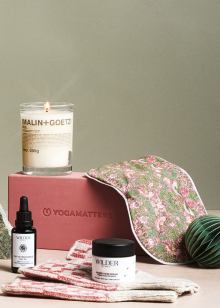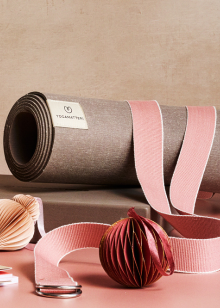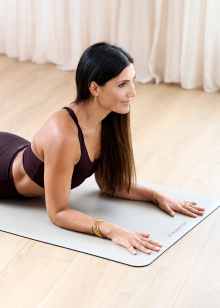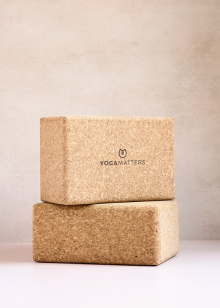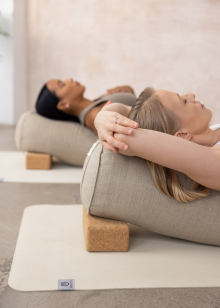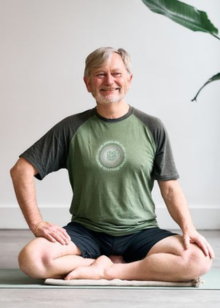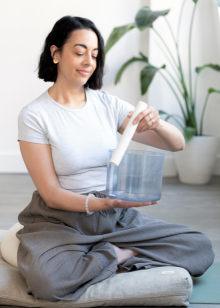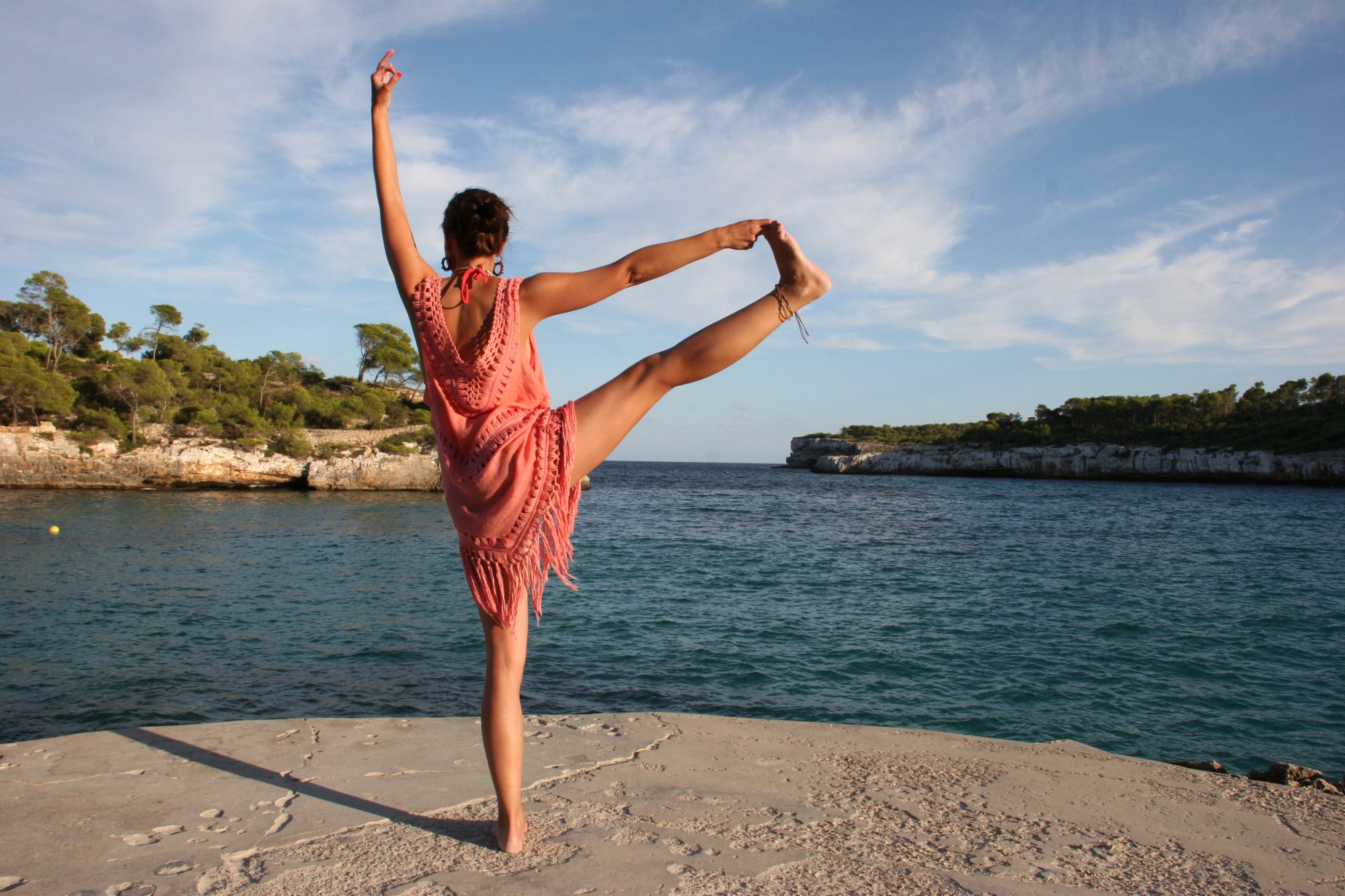On a Thursday morning in Alington House, Durham, yoga teacher Jessica Wiese (neé Komes) runs a yoga class for those affected by cancer. The class is funded by the JGW Patterson Foundation in conjunction with Gateshead-based charity FACT (Fighting All Cancers Together). As I walk up the hill in the direction of Durham Cathedral on a beautifully sunny morning, I feel a great sense of privilege to have been invited along to meet the class. I begin to wonder about their stories. I can’t imagine what these women are going through and having to deal with on a daily basis. I have no personal experience of the frightening ‘C’ word. I have no idea what to expect, what the mood of the class will be like. But as I enter the building, the sunshine I leave behind outside is there to greet me when I walk in. A sense of warmth and light pervade the whole room. The women are so welcoming and there’s a sense of joyful vitality in the air. I instantly know this is going to be a very precious hour together.
Alington House is more than just a venue. The idea for this class developed organically out of the work already taking place at this centre. When Jessie approached the staff at Alington House to teach a regular yoga class here over two years ago, little did she know what that request would lead to.
I wanted to teach here as the centre is a great central location and has a very welcoming feel. I liked the idea of a community yoga class. A friend of mine called Cristiana, who was attending this Tuesday evening class from the very start in January 2015, was diagnosed with a brain tumour. She was offered yoga specifically for those affected by cancer at Maggie’s Centre in Newcastle, but it was too far for her to travel. She suggested that we put on a class for people like her here. Cristiana died in August last year. We’ll never forget that this was her vision. Jessie
Development worker at Alington House, Deborah Barnett, was quick to get behind this project. She was dealing with her own breast cancer and enjoyed Jessie’s style of teaching yoga. She loved poring over funding manuals and writing funding proposals. She and Jessie worked together on the proposal, both learning from each other as they went.
We’d put it all down on paper but what I love about the class is that I now get to see all that theory worked out in practice. Now I see it in action. I can see how well it works. Deborah
Jessie had touched on yoga for particular illnesses during her yoga teacher training and had been teaching some one to one sessions with clients affected by cancer. She’d also lost her own father to cancer.
 As we all take to our mats and a hush descends, Jessie leads us through a series of asana into a place of peace. There’s a constant flow and yet each asana is accompanied by a depth of philosophy and understanding. The accent helps too: Jessie’s voice is lyrical and sets just the right tone for the session.
As we all take to our mats and a hush descends, Jessie leads us through a series of asana into a place of peace. There’s a constant flow and yet each asana is accompanied by a depth of philosophy and understanding. The accent helps too: Jessie’s voice is lyrical and sets just the right tone for the session.
I’m seated next to Mahvash, who explains how she lost her son to cancer 35 years ago when she was still living in Iran. Suffering from PTSD, she found that yoga was the only exercise that could help her.
I came to the England in 1989 and couldn’t find a yoga teacher that I connected with. My yoga tutor in Iran seemed to understand what I needed and could explain how the physical exercise connected with physiology and anatomy. Mahvash
Twenty eight years later, Mahvash walked into Jessie’s yoga class here at Alington House and knew immediately that she had found what she was looking for. Her husband had died from cancer back in 2013 and she was suffering from constant headaches.
By the end of that very first session with Jessie, I knew. It was so wonderful. I already felt better emotionally than I had done in such a long time. When I’m practising yoga, it’s the only time of the week that I feel comfort inside. I live in that moment. My mind is free – when I’m here, this is all I think about. Mahvash
Mahvash describes how as a carer, she tended to forget about herself and her own needs were always secondary. And then when you lose your loved one, you are lost. Shattered. You look around for something to help, anything that will help you. Yoga has been that lifeline for her, to help her rebuild her life and regain a quality of life. She goes on to explain how throughout the session, Jessie teaches the class how to move the body and how to help the body. The week before, it had been about easing the neck, which has been extremely helpful for Mahvash. She now manages her headaches so much better than she was able to before. She practises yoga fifteen minutes every morning and night and finds that she sleeps better too. She looks forward to meeting up with the class every week and the sense of community that has developed.
It’s like we’ve known each other for years. Yoga is the connection, the thing that we all have in common, even when it has different effects on different individuals. After the class, we are all so much more relaxed. Mahvash
This yoga class that Jessie offers has made a huge difference to Mahvash – so what makes Jessie’s teaching so special?
 Well, Jessie Wiese trained as a yoga teacher in Germany, where she was born and brought up. Yoga teacher training is more rigorous in Germany. A 500 hour teacher training over a time period of two years is considered the standard training for a yoga teacher, because Germans can claim three months a year of yoga as part of their health insurance and for that to count, it has to be with a 500 hour qualified teacher. Jessie trained for four years for her 800 hour teacher training with the German Yoga Union. She has a PhD in Psychology and worked as a psychologist and researcher also. When she came to the UK, the one main thing she noticed was that teachers in the UK do not seem to do assists as much as she was used to. For Jessie, assists are not about correction, but about solidarity – a way of showing ‘I am here with you; I am supporting you’. It works. Her assists calm and stretch and relax the body in a non-threatening and deeply comforting way. Jessie also likes to weave in the meditation side of yoga into all of her classes – she sees class not as a workout but a work-in.
Well, Jessie Wiese trained as a yoga teacher in Germany, where she was born and brought up. Yoga teacher training is more rigorous in Germany. A 500 hour teacher training over a time period of two years is considered the standard training for a yoga teacher, because Germans can claim three months a year of yoga as part of their health insurance and for that to count, it has to be with a 500 hour qualified teacher. Jessie trained for four years for her 800 hour teacher training with the German Yoga Union. She has a PhD in Psychology and worked as a psychologist and researcher also. When she came to the UK, the one main thing she noticed was that teachers in the UK do not seem to do assists as much as she was used to. For Jessie, assists are not about correction, but about solidarity – a way of showing ‘I am here with you; I am supporting you’. It works. Her assists calm and stretch and relax the body in a non-threatening and deeply comforting way. Jessie also likes to weave in the meditation side of yoga into all of her classes – she sees class not as a workout but a work-in.
So what makes teaching a yoga class for those affected by cancer any different to teaching any other yoga class?
I don’t know if it is so very different. I know my students individually from observing their practice and quickly become aware of their limitations, so that I can offer alternatives where necessary. But that’s true of all my students. When we take time to talk after class like we do here, I get to hear more personal stories which help me know where individuals are coming from. It helps that this place has the feel of a house. It’s a good environment. Everyone is happy and glad to be here. Even on a bad day, these women still turn up. They don’t stay away. They’re all dealing with so much, but by showing up, they’re affirming that there is so much more to life than that. They’re all learning through what they are dealing with, learning to cope with not being able to be in control of everything. I learn from them. Jessie
Jessie prepares her week’s classes thoroughly with an over-arching theme: this week, it was the heart chakra. She arrives at class well-prepared and confident, which inspires confidence in her students too. Farideh explains how since the skin graft taken from her left foot, she had not been able to stand comfortably or balance on her left foot. She’d been convinced that she would never be able to, but Jessie had gently encouraged her to give it a go. ‘Maybe you can’, that’s what Jessie had said to her. And now she can! There’s never any sense of pressure or judgement, but just that simple reassurance that says ‘Maybe you can. Have a go and see.’
Patricia had been practising yoga before she was diagnosed with breast cancer and is convinced that it was yoga that kept her strong during her chemotherapy. She managed to practise yoga almost every day during her treatment and found that to be very empowering – this was the one thing she could still do.
Cancer has a way of alienating you from your body and yoga can reconnect you with your body. As I kept practising yoga, it made me feel good that I was still able to do this, I was still able to do something. It was very fulfilling. Patricia
I come away feeling that I have witnessed something very special indeed: a celebration of life, life in all its glory, life in all its messiness and pain and confusion. Yoga has not become an escape from reality, but a way of coping with the harsh realities of life with gratitude and humility, acceptance and love.
We all have much to learn and yoga has much to teach us all.
